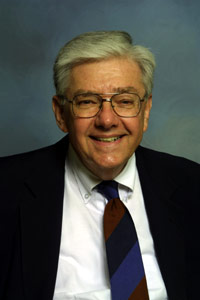What Has Changed the Most in Legal Education Since You Became a Law Professor?
 [Editor’s Note: This month, we asked a few veteran faculty members to share their reflections on what has changed the most in legal education since they became law professors. This post is the first in the series.]
[Editor’s Note: This month, we asked a few veteran faculty members to share their reflections on what has changed the most in legal education since they became law professors. This post is the first in the series.]
I became a law professor in 1970, my first year on the Georgetown law faculty. I believe that one of the most changed aspects of legal education in the past forty-one years is the care and feeding of law students. By that, I refer to the remarkable proliferation of in-house extra-curricular activities. Innumerable law societies shedding light on the various interests of students and weekly opportunities to hear great speakers are but the tip of the iceberg. Not to be overlooked is the availability of frequent free lunches at these noon events. So much for the “feeding.” As to the “care,” the heightened interaction between faculty and students represents a fundamental change in legal education. I do not believe that I ever spoke to one of my professors outside of class. Contrast this with the expectations of today’s students. To conclude, I almost wish I were a law student now instead of then.

